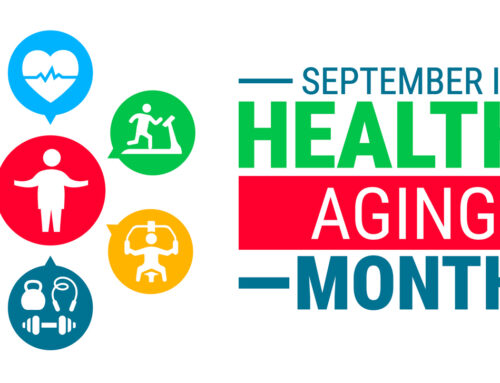If you’ve lived in South Florida (or anywhere along the East Coast) for any length of time, you’ve probably seen more than your share of hurricane forecasts, scary-looking radar images, emergency alerts, evacuations, and property damage. Seniors can find hurricane scenarios especially worrying. If you haven’t made proper preparations for hurricane season, now’s the time to start, whether you’re a senior or you care for a senior who may need extra help during one of these natural disasters. Let’s examine some ways careful planning can help keep you and yours safe when the weather turns ugly.
The Need for a Hurricane Disaster Plan
Hurricanes and Florida seem to have an affinity for each other, and not just South Florida. At least one hurricane has swept the state’s coastline every year since 1850. Hurricane season officially starts on June 1 and runs through November. However, an astonishing 90% of all hurricane strikes occur between August 1 and the end of October, making the development of a hurricane disaster plan a must for seniors and their caregivers.
Seniors clearly face elevated risks in the face of a natural disaster. Half of the individuals killed by Hurricane Katrina belonged to the 75-and-older age bracket. Reasons for this vulnerability can include tight financial resources, ailments that limit mobility, and relative isolation from friends, family, or neighbors. But even though many seniors would clearly need help in evacuating safely, research shows that less than 25% of seniors actually have a disaster plan in place. The time to put together such a plan is not after the warnings have gone off, but right now.
Smart Steps for Senior Safety
Fortunately, the creation of a hurricane disaster plan is easier than you might think, as long as you follow specific steps to ensure that your account for every contingency, including special needs related to age-related health challenges. Here’s a basic procedure that should cover your primary needs.
Assemble a basic hurricane survival kit. You’ll need at least one gallon of water per day (multiplied by however many people weather the storm along with you). Keep two weeks’ worth of water on hand, taking at least three days’ worth with you if you must evacuate. Stock up on canned foods (not forgetting a hand-operated can opener), disposable tableware, and personal hygiene products such as toilet paper. Bring extra keys as well as cash (since ATMs may fail in the storm).
Accommodate any special medical needs. If you need to take medication or use other medical supplies, keep one week’s worth of those supplies handy in a watertight container in case you need to evacuate your home. If you use a powered assisted device such as a hearing aid or electric wheelchair, make sure you have adequate batteries on hand for those devices.
Collect your papers and electronics. Place all your valuable documents, including your birth certificate, insurance policies, and medical data such as allergies and medications, in a waterproof container, and keep the container in an easy-to-reach spot. Keep your cell phone charged, with a fully charged extra battery ready to go. Consider investing in a hand-cranked battery so you can keep receiving news updates and emergency instructions without the aid of electric power.
Don’t forget your pet. Put pet food, medicines, vaccination records, and carriers in one area so you can make sure your pet gets through the emergency with you. If you haven’t yet microchipped your pet, have that quick, affordable procedure done now. A microchip could make all the difference in finding your pet again if it gets separated from you in all the excitement.
Automate your finances. If you haven’t yet done so, set up automated payments from any income sources you may have. This will ensure that your accounts stay funded and your bills get paid even if you can’t manage them personally during a hurricane.
Prepare your car for evacuation. Have your car inspected and get any problems dealt with before a hurricane threatens. Carry road flares, a flashlight, replacement batteries for the flashlight, bottled water, and plenty of nonperishable snacks. Make sure your car also has a fully stocked first aid kit.
Storm-proof your home as best you can. Hurricane damage can overwhelm even the best efforts to protect your home. Even so, you may prevent some kinds of damage by having your windows boarded up and shutting off electricity/gas before you evacuate. Make sure the alarms still work so they’ll alert first responders to potential danger. Before the storm hits, take as many photos as you can of your home, inside and out, for insurance purposes.
Know where to find essential support. Put together a support network of friends and family members who can help you evacuate and provide you with temporary shelter. Learn the location of the nearest general population shelter in case you can’t connect with these individuals. If you have special medical needs that a general population shelter can’t accommodate, know how to get to one of the Special Needs Shelters provided by the Florida Department of Health, Bureau of Preparedness and Response.
Get the help you need to rebuild. Reach out to assistance agencies such as FEMA, the American Red Cross, the National Guard, and your local police and firefighting departments for hurricane recovery help. Even if you haven’t evacuated, you may have lost access to power and/or water, so consider relocating until the home becomes livable again. (Heat and humidity in the wake of a hurricane can prove especially brutal for seniors whose health hinges on air conditioning.)
FirstLantic.com cares about South Florida seniors, not just during hurricane season but all year round. If you or your elderly loved one could use a helping hand from skilled home care professionals, contact our team today!
 AVAILABLE 24 HOURS A DAY/7 DAYS A WEEK
AVAILABLE 24 HOURS A DAY/7 DAYS A WEEK Careers
Careers







